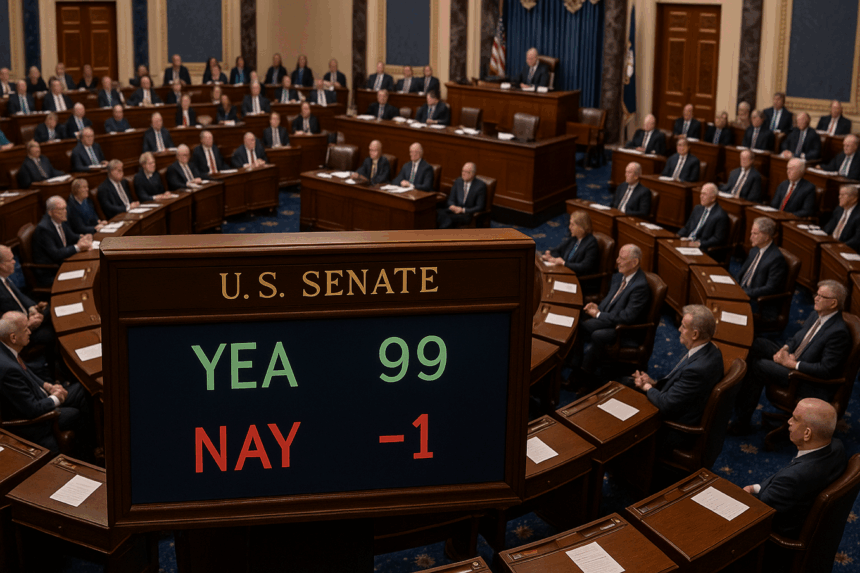The U.S. Senate overwhelmingly rejected a proposal that would have blocked states from regulating artificial intelligence (AI) companies for a decade. The 99-1 vote signals strong bipartisan opposition to banning local AI oversight, emphasizing the growing demand for accountability in the fast-evolving AI industry.
What’s Happening & Why This Matters
On Tuesday, the Senate voted 99-1 to remove a provision from President Donald Trump’s tax bill that aimed to ban state-level AI regulation for a period of ten years. The original proposal would have forced states seeking federal AI funding to halt enforcement of any AI-related restrictions, effectively granting AI companies a regulatory free pass.
Republicans initially sought to reduce the ban to five years. Still, that effort was abandoned when Senators Edward Markey, Maria Cantwell, and Marsha Blackburn introduced a late-night motion to eliminate the provision altogether.
State lawmakers and AI safety advocates strongly opposed the rule. Senator Markey called the measure “dangerous,” arguing it would prioritize Big Tech’s profits over protecting children and communities. Max Tegmark, president of the Future of Life Institute, praised the Senate’s “overwhelming rejection,” pointing to bipartisan resistance against letting AI companies operate without oversight. He noted that CEOs admit they cannot control their AI systems yet seek immunity from regulation.
Supporters of the original proposal warned that varying state laws could slow U.S. AI innovation and weaken the country’s ability to compete with China. A recent Stanford University report found the U.S. currently leads the global AI race, with China close behind. National leaders stress that AI leadership is critical for security, healthcare, and economic growth.

Major tech companies are divided on regulation. OpenAI, maker of ChatGPT, supports a “regulatory strategy” that encourages innovation through voluntary partnerships between government and industry. Google urges lawmakers to avoid a chaotic patchwork of state rules by focusing on existing federal regulations.
Meanwhile, Meta cited U.S. Vice President JD Vance’s warning that “excessive regulation” could stifle a transformative industry just as it grows. Meta also called for easing barriers on AI infrastructure investments, such as building data centers.
Since returning to the office, Trump has issued executive orders to remove federal AI restrictions introduced under President Biden. He aims to eliminate “barriers to American AI innovation” and maintain global leadership. Trump also plans to enhance AI education in schools and revise procurement rules to expand government adoption of AI.
TF Summary: What’s Next
The Senate’s decisive vote signals strong demand for local control over AI regulation. It pushes back against attempts to centralize AI oversight, underscoring the need for accountability as AI technology rapidly advances.
As debates swirl, policymakers must weigh innovation, safety, and ethical concerns. How states and the federal government coordinate AI regulations can set the industry’s future and establish (or destroy) America’s competitive edge.
— Text-to-Speech (TTS) provided by gspeech


